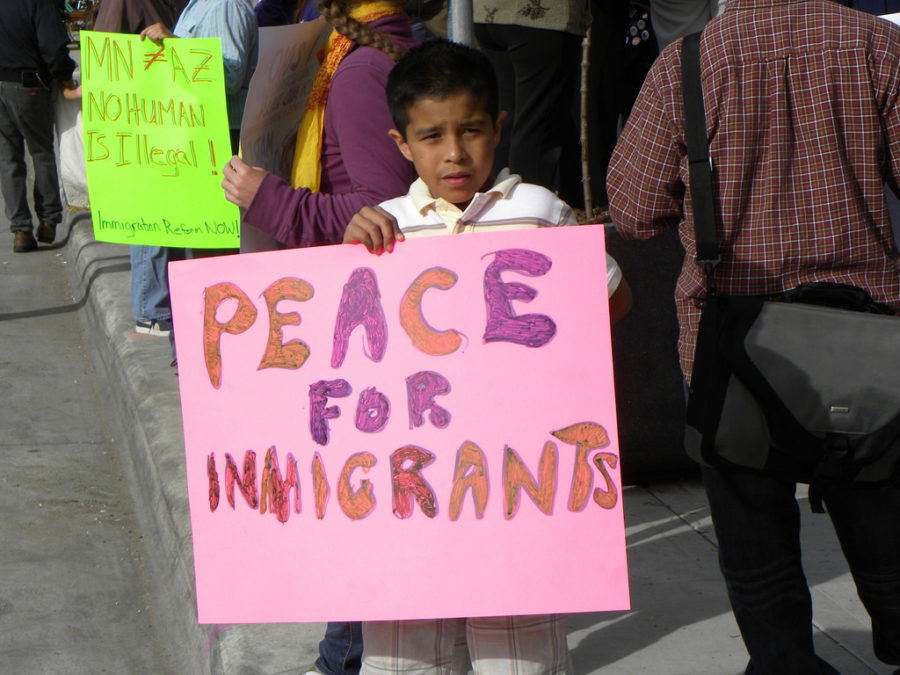With signs of solidarity posted defiantly over their doors, dozens of Bay Area restaurants and businesses have abruptly shut down to show what it is like to live “A Day Without Immigrants.”
On Thursday, Feb. 16, thousands of immigrants across the country skipped worked and missed school in an effort to make a statement about how important immigrants were to the U.S. and its economy.
“America is supposed to be a melting pot of ethnicity, races, and diversity. America’s population of immigrants is so large that it should be nearly impossible to not realize that the economy is built on their backs,” said Michelle Wong, a student at UC Davis.
The movement is a response to President Donald Trump’s immigration plans, which includes a pledge to seal the U.S.-Mexico border and a travel ban on the people of seven primarily Muslim countries.
The day of protest occurred shortly after Immigration and Customs Enforcement agents alarmed immigrant rights advocates by arresting around 680 people in raids across the U.S. over the past couple weeks. According to NPR, the Department of Homeland Security has called the raids routine, saying they targeted those who had criminal convictions.
This protest has been especially personal for many immigrants who have experienced first hand the struggles of coming to the U.S. for a new life.
Marcus Garcia, a student at the University of Redlands, said, “It means a lot to me. In addition to symbolizing the current political climate, this protest opens awareness to how America is heavily influenced by other cultures: my Hispanic culture, my friend’s Chinese culture, and many more.”
However, many others are opposed to the “A Day Without Immigrants” protest.
Wendy Smith, a Belmont resident, said, “I have no problem with diversity. I think culture is great for my kids and for the community. However, I also see no point in these protests. They make no difference, and quite frankly I think many people are just looking for an excuse to not work.”
Many companies and corporations are against the protest as well. Up to a hundred participants, including construction workers and restaurant staff, reported being fired after refusing to go to work on Thursday.
In a CNN interview, Jim Serowski of JVS Masonry in Commerce City, Colorado said he had no regrets after firing about 30 bricklayers.
“They were warned, ‘if you do this you’re hurting the company, and if you go against the team, you’re not a member of the team,’ ” said Serowski.
While many aren’t surprised by the companies’ actions, they continue to stand by the protesters.
Sophomore Michael Atkin said, “While many of the protests seem ineffectual or even harmful as workers have lost their jobs as a result of their going on strike, they fulfill a vital aspect of democracy: expressing discontent and calling for change.”


